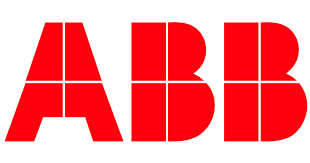Late last week, the Department of Justice (DOJ) announced a highly anticipated resolution of Foreign Corruption Practices Act (FCPA) violation involving the Swiss construction giant, ABB Ltd. The most obvious significance is from the fact that ABB is now the first three-time convicted violator of the FCPA, having prior FCPA resolutions in 2004 and 2010. The moniker of a three-time FCPA violator is certainly not one that any corporation wants to claim. The total fine and penalty for the violation was $315 million, with credited amounts going to South Africa, Switzerland and Germany for ABB’s violations of those country’s anti-corruption laws. There was also a $75 million fine credited to the Securities and Exchange Commission (SEC). Over the next several blog posts, we will explore this FCPA enforcement action, and, most particularly, three key questions: (1) How did ABB obtain such a superior resolution? (2) As a three-time FCPA violator, how did the company avoid a monitor? (3) Why was there no requirement for Chief Compliance Officer (CCO) certification?
At this point, not all of the resolution documents are publicly available. The only two documents are the DOJ Press Release and Plea Agreement. Conspicuously missing at this point are resolution documents from the SEC and those from South Africa, Switzerland and Germany. As noted, the overall FCPA fine and penalty is $315 million with credit of $75 million to the SEC and according to the Press Release, “ABB’s total criminal penalty is $315 million. The department has agreed to credit up to one-half of the criminal penalty against amounts the company pays to authorities in South Africa in related proceedings, along with other credits for amounts ABB pays to resolve investigations conducted by the SEC and authorities in Switzerland and Germany, so long as payments underlying an anticipated resolution with German authorities are made within 12 months of today’s date.”
According to Assistant Attorney General Kenneth A. Polite, Jr. of the DOJ’s Criminal Division, “This is the department’s first coordinated resolution with authorities in South Africa, where much of ABB’s criminal scheme was carried out, reflecting our commitment to relationship-building and our ever-deepening partnerships in the global fight against corruption. ABB bribed a high-ranking official at South Africa’s state-owned energy company in order to corruptly obtain confidential information and win lucrative contracts. In addition, our partners in South Africa have brought corruption charges against that official. This resolution demonstrates the Criminal Division’s thoughtful approach to appropriately balancing ABB’s extensive remediation, timely and full cooperation, and demonstrated intent to bring the misconduct to the department’s attention promptly upon discovering it, while also accounting for ABB’s historical misconduct.” The DOJ also noted, “the assistance provided by law enforcement authorities in South Africa, Switzerland, and Germany.”
Certainly, the cooperation and partnering with South Africa is a welcoming sign, given the corrupt nature of the South African government under the prior regime of President Zuma. The allegations of state capture involving Zuma, his family and the Gupta brothers rocked the country for many years. Although this enforcement action involving ABB does not appear to have been a part of the state capture allegations, it may portend a reckoning of companies who have conducted business in the corrupt state over the past decade. It may be that ABB is only the opening salvo on corruption cases from South Africa which could rival Lava Jato from Brazil.
As for the actual resolution, the Press Release noted, “ABB entered into a three-year deferred prosecution agreement (DPA) with the department in connection with the filing of a criminal information in the Eastern District of Virginia charging the company with conspiracy to violate the FCPA’s anti-bribery provisions, conspiracy to violate the FCPA’s books and records provisions, and substantive violations of the FCPA. In addition, ABB subsidiaries ABB Management Services Ltd. (Switzerland) and ABB South Africa (Pty) Ltd. (South Africa) each pleaded guilty to one count of conspiracy to violate the anti-bribery provisions of the FCPA.” Once again there is a parent receiving a DPA with subsidiaries agreeing to make criminal pleas.
The bribery schemes themselves involved a series of actions between 2014 and 2017, where ABB subsidiaries paid bribes to a South African government official at the state-owned and controlled energy company, Eskom Holdings Limited (Eskom), to obtain business advantages in connection with the award of multiple contracts. Moreover, “ABB engaged multiple subcontractors associated with the South African government official and made payments to those subcontractors that were intended as bribes. ABB worked with these subcontractors despite their poor qualifications and lack of experience. In return, ABB received improper advantages in its efforts to obtain work with Eskom, including, among other benefits, confidential and internal Eskom information. As part of the scheme, ABB conducted sham negotiations to obtain contracts at inflated prices that ABB had pre-arranged with the South African government official, all on the condition that ABB employ a particular subcontractor associated with that official. ABB also falsely recorded payments to the subcontractors as legitimate business expenses when, in fact, a portion of the payments were intended as bribes for the South African government official.”
But as bad as ABB’s conduct was during this period, perhaps even more impressive was its conduct after it uncovered the bribery and corruption. Although ABB did not self-disclose the conduct before it was made public, the company “demonstrated intent to disclose the misconduct promptly to the department.” Thereafter, the company engaged in “extraordinary cooperation with the department’s investigation” as well as extensive remediation. The DOJ specifically called out the company “carrying out a root-cause analysis of the misconduct and making significant investments in compliance personnel, compliance testing, and monitoring through the organization.” There were also statements in the DPA which made inapplicable the DOJ’s prior statements on monitors and certifications, including “ABB’s commitment to further enhance its compliance program and internal controls, including enhanced reporting provisions that require ABB, during the pendency of the DPA, to meet with the department at least quarterly and to submit yearly reports regarding the status of its remediation efforts, the results of its testing of its compliance program, and its proposals to ensure that its compliance program is reasonably designed, implemented, and enforced, so that it is effective in deterring and detecting violations of the FCPA and other applicable anti-corruption laws.”
In short, there is much to unpack in this matter. Join us tomorrow where we look at the bribery schemes.







